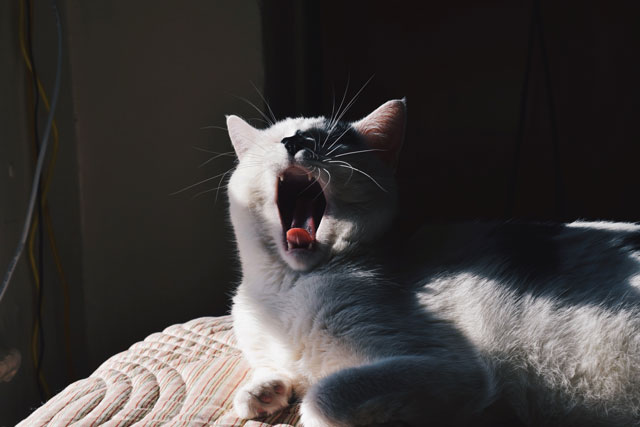 get elephant's newsletter
get elephant's newsletter
It is estimated that 50 to 70 million Americans are unable to get a good night’s sleep. (13) As we age, a good night’s sleep becomes more difficult to acheive.
Today, the science keeps mounting, linking at least eight hours of sleep a night to greater longevity and optimal health. (1,2)
A poor night’s sleep has been linked to a host of health concerns including:
>> Inability to cope with daily stress (1,2,3)
>> Worry and nervousness (3)
>> Stubborn weight issues (4)
>> Reduction in healthy body image (5)
>> Mild fatigue (2)
>> Cognitive issues (1,2)
>> Decreased telomere length (2,7)
>> Increased risk of heart health concerns (1)
>> Blood sugar imbalance (1,6)
Wacky sleep hormones.
A good night’s sleep is a reflection of a balanced relationship with the light/dark circadian cycles. These cycles are regulated by the body’s biological clocks, which are calibrated by the body’s hormonal system. If we are out of sync with the light/dark cycles, a cascade of imbalances will ensue:
>> Most commonly, blood sugar becomes imbalanced, and we start to gain weight.
>> Dopamine levels surge, and we crave more food and material possessions.
>> Estrogen levels rise, causing weight gain and mood imbalances.
>> Cortisol levels remain elevated, depleting adrenals and resulting in increased fatigue.
>> Melatonin, which puts us to sleep, crashes along with its most powerful antioxidant effect on detoxification. (8,9)
Fundamentally, the morning after a poor night’s sleep, cortisol levels will rise higher than normal. This is because the body did not de-stress effectively during the night. Cortisol levels may rise and fall all day, creating spikes and dips in energy that most people don’t even notice. But when cortisol levels stay elevated into the late evening, the sleep hormone, melatonin, is blocked from being able to surge.
Lack of melatonin is linked to poor sleep, poor nightly liver and bile activity, and a host of other concerns. This is because it regulates about 10 of the body’s major hormones. (9)
Learn more about the magic of melatonin here.
Ashwagandha—the “Sleep Inducer.”
Ashwagandha (Withania somnifera) is named after its ability to help de-stress the body and support healthy sleep. The word somnifera in Latin literally means “sleep inducer.” In one study, when individuals under stress supplemented with ashwagandha, there were significant reductions in cortisol levels and weight as measured by body mass index (BMI). In that same study, the study participants also experienced a reduction in perceived stress, more happiness and less food cravings. (10)
As an adaptogen, ashwagandha has been shown to support the brain in response to stress-related sleep deprivation, encouraging healthy levels of locomotion, learning, and memory. (11)
Constituents in ashwagandha have also been shown to activate nerve cell receptors for the mood-calming neurotransmitter, GABA. (12)
The first step in supporting a healthy connection to the light/dark cycles is to de-stress. While there are many ways to de-stress—including lifestyle, nose breathing exercise, meditation, yoga, and more—studies are now increasingly backing ashwagandha as a powerful, adaptogenic stress reliever that can help contribute to a good night’s sleep.
Learn more about to de-stress Ayurveda style here.
References:
- PubMed Central
- PubMed Central
- PubMed Central
- PubMed Central
- PubMed Central
- PubMed Central
- PubMed Central
- PubMed Central
- Lights Out: Sleep, Sugar, and Survival by T.S. Wiley, Bent Formby
- PubMed Central
- PubMed Central
- PubMed Central
- CDC Newsroom
~
Author: Dr. John Douillard

No comments:
Post a Comment